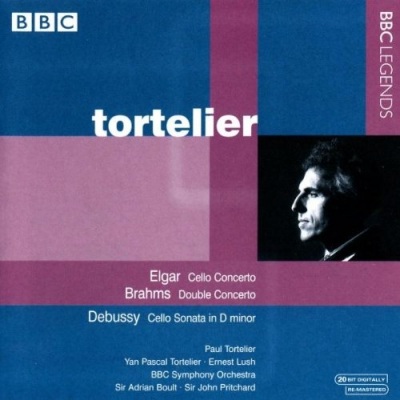
Elgar: Cello Concerto / Brahms: Double Concerto / Debussy: Cello Sonata in D minor
Gramophone Magazine September 2008 “…a fine portrait of the great French cellist Paul Tortelier at the height of his career…[His]personality is stamped on every bar of these live performances...It is specially valuable to have his view of the Elgar Cello Concerto…in a live recording which gives an even warmer, more spontaneous-sounding view of the piece in his distinctive interpretation.” Gramophone Classical Music Guide 2010 “This generous collection of three favourite works provides a fine portrait of the great French cellist Paul Tortelier at the height of his career in the post-war period. It is specially valuable to have his view of the Elgar Cello Concerto, which he recorded commercially at least three times. Here it comes in a live recording which gives an even warmer, more spontaneoussounding view of the piece in his distinctive interpretation. Tortelier strongly believed that Elgar's markings should not be exaggerated, in particular the marking tenuto, at which many interpreters bring the music practically to a halt. In the second- movement Scherzo, for example, the drawing out of the tempo in two key places is markedly less here than in most rival readings. Tortelier also felt that the portamento slides should be kept to a minimum in the first movement, something he was able to achieve thanks to his very large hands. Even so, there is no lack of warmth in the dedicated slow movement or the meditative epilogue, which are given their full emotional weight. The performance of Brahms's Double Concerto has similar qualities, and is important too for demonstrating what a fine violinist Tortelier's son Yan Pascal is. The bright purity of his violin tone contrasts illuminatingly with the richness of his father's cello tone. The performance of the Debussy Sonata dates from much earlier, a 1959 studio recording, which yet brings out the natural spontaneity with which Tortelier tackled this improvisational work with its many stops and starts. Recording quality is generally good, though in the Elgar the audience is irritatingly bronchial at times.”
